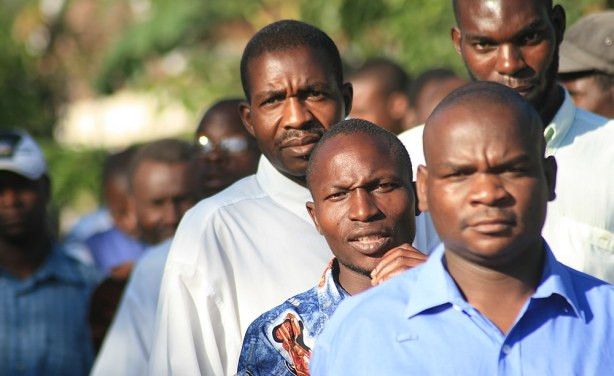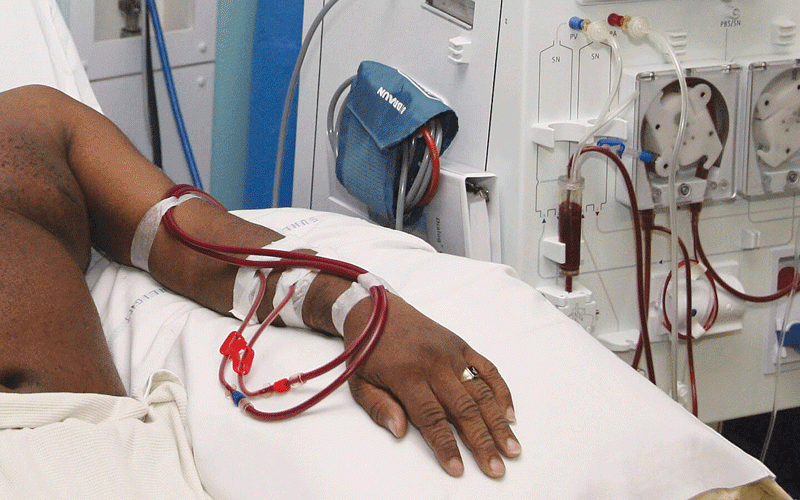
NEWSDAY reporter Vanessa Gonye (ND) caught up with Ronald Ncube (RN), executive director of Union Zimbabwe Trust who enlightened her on their tuberculosis (TB) interventions such as the Kunda-Nqob’iTB (KN-TB) project that is set to run for the next five years.
Below are excerpts of the interview.
ND: What is the KN-TB project about and what are its intended objectives and goals?
RN: The Kunda-Nqob’iTB (KN-TB) is a five-year programme supported by the United States Agency for International Development (USAid) and primarily contributes to the Ministry of Health and Child Care (MOHCC) National TB Programme’s mandate of finding missed TB patients, particularly among high risk groups for tuberculosis.
The project is implemented across eight high-TB burdened priority districts in Zimbabwe and aims to link all diagnosed TB patients to comprehensive care, including management of comorbidities to ensure successful treatment outcomes.
The lead partner is the Union Zimbabwe Trust (UZT), supported by three other local organisations as implementing partners, namely; Hospice and Palliative Care Association of Zimbabwe (HOSPAZ), Jointed Hands Welfare Organisation (JHWO) and Baines Occupational Health Services (BOHS).
The overarching goal of the KN-TB programme is to prevent the spread of TB, improve quality of care and contribute to the reduction of new TB cases and TB-related deaths.
Ultimately, the project seeks to contribute to the elimination of TB as a public health threat in Zimbabwe, through promoting innovative and sustainable interventions to strengthen the overall health system.
- WhaWha triumphs in the slugfest of wardens
- Bruised Gems get consolation win
- Veld fires ravage Beitbridge
- Harare suspends Pomona deal
Keep Reading
ND: Who are the target beneficiaries of this project and which communities have you been working with?
RN: The eight project districts that are prioritised are Gwanda, Gweru, Insiza, Kwekwe, Zvishavane, Mwenezi, Chirumhanzu and Shurugwi. These are characterised by high artisanal mining activities, a disproportionate burden of TB disease and associated poor treatment outcomes.
The target beneficiaries are undiagnosed TB patients in the community, particularly among high risk groups such as people living with HIV, artisanal and small-scale miners (ASMs), contacts of TB patients, children, healthcare workers, smokers and patients with silicosis.
The target audience goes beyond the immediate beneficiaries, with focus on policymakers and programme implementers at national and provincial levels, advocating evidence-based TB-control policies and strategies.
The capacity of healthcare workers to manage TB is enhanced through training and on-site mentorship. Community leaders have been engaged and their role in health centre committees reinforced to address community-related TB issues.
A network of community health workers across the target districts has been mobilised and sensitised on community TB issues, including case finding and treatment adherence support for patients in care.
ND: Since its inception, what are some of the success stories achieved so far?
RN: Since inception, the project has contributed to the following milestones; Cumulatively, a total of 11 417 TB cases were diagnosed across the eight project districts through KN-TB support.
A total of 10 668 ASMs have been screened at the two specialised occupational health clinics established through project support, through workplace-based screening campaigns at the mining pits and dedicated occupational health camps targeting artisanal miners.
A total 793 ASMs have been diagnosed with TB to date. In addition, 10 282 ASMs have been screened for silicosis and 2 150 diagnosed with the disease, an important risk factor for developing TB. Among those diagnosed with silicosis, 1 665 were eligible for TB preventive therapy (TPT) and 1 212 (73%) were successfully initiated on TPT.
Through a network of over 800 community-based volunteers supported by the project, the contribution of TB diagnosis through community referrals increased from 8% at baseline to 24% by year 4.
The project successfully integrated a palliative care package as part of TB care that has contributed to a steady improvement in treatment outcomes from a treatment success rate of 79% at baseline to 84% by year 4.
The project has provided technical assistance in updating national TB treatment guidelines including for drug resistant forms of TB. This has seen the successful country adoption of shorter and more patient friendly six-month regimens for drug resistant TB, from the previous 24-month regimens, associated with severe side effects.
Through project support, health workers across supported districts have been trained on a user-friendly Making sense of TB data guide to enhance local use of generated data for decisionmaking
ND: UZT has been supporting the National TB Programme to develop a patient tracker application. Can you tell us about that?
RN: The project recently supported the MOHCC to develop the “DR-TB tracker” on the backbone of the DHIS2 platform or national disease surveillance repository. The DR-TB tracker is a case-based surveillance platform that enables longitudinal tracking of patients notified with drug resistant TB in real time and better track treatment outcomes.
Although, the application is yet to be deployed it is anticipated to be piloted in two project supported districts, to inform nationwide roll-out.
ND: What is your take on the prevalence of HIV/TB co-infection in Zimbabwe? Has there been any measure taken to mitigate this under KN-TB?
RN: TB-HIV co-infection rate is generally on the decline in Zimbabwe although still substantially high. In 2022 among notified TB patients, as high as 51% were co-infected with HIV. The country has successfully scaled up universal provider-initiated HIV tests for TB patients, to ensure timely access to anti-retroviral treatment.
According to the 2023 Global TB Report published annually by the World Health Organisation, in 2022, 95% of TB-HIV co-infected patients were initiated on ART.
Through KN-TB support, healthcare workers have been mentored through practical attachments at centres of integrated TB-HIV care to promote HIV testing and early ART initiation. High volume clinics have been supported to integrate screening for TB, diabetes mellitus and HIV as part of patient centred care.











